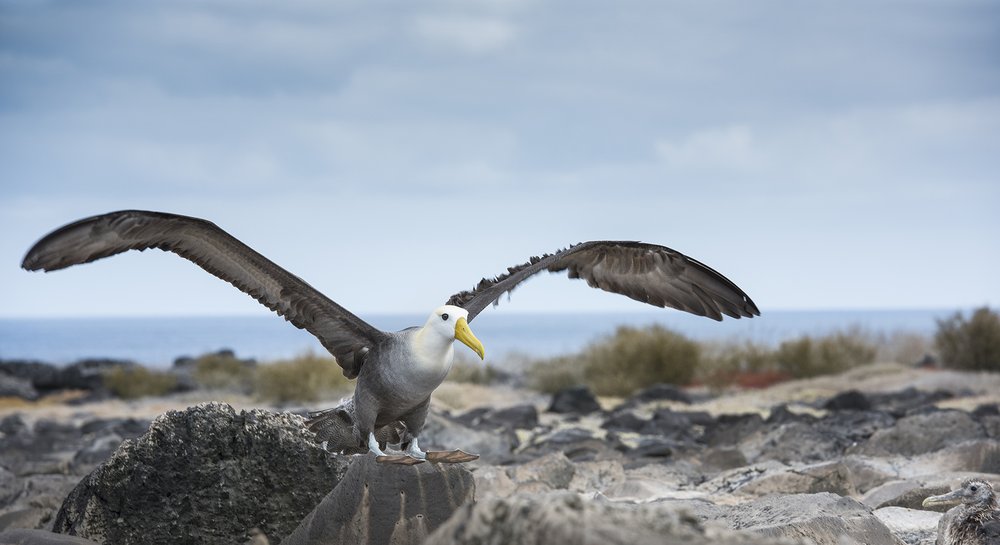
Author: Isabel Grijalva
World Albatross Day, which is celebrated on June 19th each year, aims to highlight this species and draw the attention of governments, fishermen, researchers and the general public to the problems faced by these birds. It seeks to highlight possible solutions to these threats. The theme proposed by the Agreement on the Conservation of Albatrosses and Petrels (ACAP) to celebrate this day is "Ensuring Albatross-friendly Fisheries". For this year, the two species chosen to be highlighted, due to their threats, are the Gough Island Tristan Albatross and the Galapagos Albatross, both in the Critically Endangered category, according to the International Union for Conservation of Nature (IUCN).
The Galapagos Albatross (Phoebastria irrorata) is also known as the "Waved Albatross", a seabird endemic to Ecuador. 99.9% of the population of this species breeds on Española Island (Galapagos), and 0.1% on La Plata Island (Machalilla National Park), on the mainland coast of Ecuador. Its range extends from the Galapagos archipelago to the Exclusive Economic Zones off the coasts of Ecuador, Peru and Chile.
The Charles Darwin Foundation and the Galapagos National Park Directorate maintain, as a joint initiative, the Galapagos Albatross Ecological and Epidemiological Monitoring Program, which has been underway for 19 years and is led by CDF Senior Research Scientist Gustavo Jiménez-Uzcátegui.
Gustavo mentions that: "in the 2000s, 50% of the albatross population in Galapagos began their reproductive period when they were seven years old. However, in the 1970s, their sexual maturity period began when they were four years old. This difference in reaching maturity is possibly explained by the fact that in the distribution and feeding areas for this species, over the years there has been greater competition for food with fishing boats, which catch a large part of their food, which delays their sexual development".
19 June 2021 was the 20th anniversary of the signing of the Agreement on the Conservation of Albatrosses and Petrels (ACAP). This international agreement, of which Ecuador is a member, is an instrument that seeks to conserve albatrosses and petrels worldwide. This instrument proposes the coordination of an Action Plan to protect seabird species, and details national and international activities to achieve these objectives.





